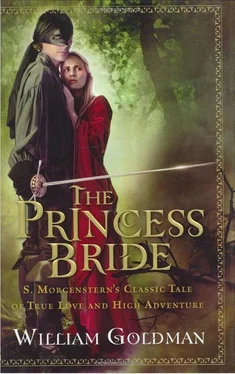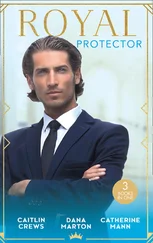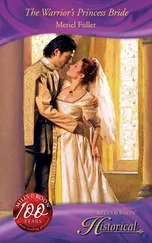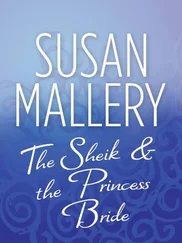"How can it hurt when the point of the weapon is still an inch away from your belly?" Domingo asked.
"I'm anticipating, don't bother me, let me die unpestered." He brought the point to his skin, pushed.
Domingo grabbed the knife away. "Someday I won't stop you," he said. "Inigo, set an extra place for supper."
"I was all set to kill myself, truly."
"Enough dramatics."
"What is on the menu for the evening?"
"The usual gruel."
"Inigo, go check and see if there's anything by chance in my carriage outside."
There was always a feast waiting in the carriage.
And after the food and the stories would come the departure, and always, before the departure, would come the request. "We would be partners," Yeste would say. "In Madrid. My name before yours on the sign, of course, but equal partners in all things."
"No."
"All right. Your name before mine. You are the greatest sword maker, you deserve to come first."
"Have a good trip back."
"WHY WON'T YOU?"
"Because, my friend Yeste, you are very famous and very rich, and so you should be, because you make wonderful weapons. But you must also make them for any fool who happens along. I am poor, and no one knows me in all the world except you and Inigo, but I do not have to suffer fools."
"You are an artist," Yeste said.
"No. Not yet. A craftsman only. But I dream to be an artist. I pray that someday, if I work with enough care, if I am very very lucky, I will make a weapon that is a work of art. Call me an artist then, and I will answer."
Yeste entered his carriage. Domingo approached the window, whispered: "I remind you only of this: when you get this jeweled initialed sword, claim it as your own. Tell no one of my involvement."
"Your secret is safe with me."
Embraces and waves. The carriage would leave. And that was the way of life before the six-fingered sword.
Inigo remembered exactly the moment it began. He was making lunch for them—his father always, from the time he was six, let him do the cooking—when a heavy knocking came on the hut door. "Inside there," a voice boomed. "Be quick about it."
Inigo's father opened the door. "Your servant," he said.
"You are a sword maker," came the booming voice. "Of distinction. I have heard that this is true."
"If only it were," Domingo replied. "But I have no great skills. Mostly I do repair work. Perhaps if you had a dagger blade that was dulling, I might be able to please you. But anything more is beyond me."
Inigo crept up behind his father and peeked out. The booming voice belonged to a powerful man with dark hair and broad shoulders who sat upon an elegant brown horse. A nobleman clearly, but Inigo could not tell the country.
"I desire to have made for me the greatest sword since Excalibur."
"I hope your wishes are granted," Domingo said. "And now, if you please, our lunch is almost ready and—"
"I do not give you permission to move. You stay right exactly where you are or risk my wrath, which, I must tell you in advance, is considerable. My temper is murderous. Now, what were you saying about your lunch?"
"I was saying that it will be hours before it is ready; I have nothing to do and would not dream of budging."
"There are rumors," the nobleman said, "that deep in the hills behind Toledo lives a genius. The greatest sword maker in all the world."
"He visits here sometimes—that must be your mistake. But his name is Yeste and he lives in Madrid."
"I will pay five hundred pieces of gold for my desires," said the big-shouldered noble.
"That is more money than all the men in all this village will earn in all their lives," said Domingo. "Truly, I would love to accept your offer. But I am not the man you seek."
"These rumors lead me to believe that Domingo Montoya would solve my problem."
"What is your problem?"
"I am a great swordsman. But I cannot find a weapon to match my peculiarities, and therefore I am deprived of reaching my highest skills. If I had a weapon to match my peculiarities, there would be no one in all the world to equal me."
"What are these peculiarities you speak of?"
The noble held up his right hand.
Domingo began to grow excited.
The man had six fingers.
"You see?" the noble began.
"Of course," Domingo interrupted, "the balance of the sword is wrong for you because every balance has been conceived of for five. The grip of every handle cramps you, because it has been built for five. For an ordinary swordsman it would not matter, but a great swordsman, a master, would have eventual discomfort. And the greatest swordsman in the world must always be at ease. The grip of his weapon must be as natural as the blink of his eye, and cause him no more thought."
"Clearly, you understand the difficulties—" the nobleman began again.
But Domingo had traveled where others' words could never reach him. Inigo had never seen his father so frenzied. "The measurements ... of course .. . each finger and the circumference of the wrist, and the distance from the sixth nail to the index pad ... so many measurements ... and your preferences ... Do you prefer to slash or cut? If you slash, do you prefer the right-to-left movement or perhaps the parallel? ... When you cut, do you enjoy an upward thrust, and how much power do you wish to come from the shoulder, how much from the wrist? ... and do you wish your point coated so as to enter more easily or do you enjoy seeing the opponent's wince? ... So much to be done, so much to be done ..." and on and on he went until the noble dismounted and had to almost take him by the shoulders to quiet him.
"You are the man of the rumors."
Domingo nodded.
"And you will make me the greatest sword since Excalibur."
"I will beat my body into ruins for you. Perhaps I will fail. But no one will try harder."
"And payment?"
"When you get the sword, then payment. Now let me get to work measuring. Inigo—my instruments."
Inigo scurried into the darkest corner of the hut.
"I insist on leaving something on account."
"It is not necessary; I may fail."
" I insist. "
"All right. One goldpiece. Leave that. But do not bother me with money when there is work that needs beginning."
The noble took out one piece of gold.
Domingo put it in a drawer and left it, without even a glance. "Feel your fingers now," he commanded. "Rub your hands hard, shake your fingers—you will be excited when you duel and this handle must match your hand in that excitement; if I measured when you were relaxed, there would be a difference, as much as a thousandth of an inch and that would rob us of perfection. And that is what I seek. Perfection. I will not rest for less."
The nobleman had to smile. "And how long will it take to reach it?"
"Come back in a year," Domingo said, and with that he set to work.
Such a year.
Domingo slept only when he dropped from exhaustion. He ate only when Inigo would force him to. He studied, fretted, complained. He never should have taken the job; it was impossible. The next day he would be flying: he never should have taken the job; it was too simple to be worth his labors. Joy to despair, joy to despair, day to day, hour to hour. Sometimes Inigo would wake to find him weeping: "What is it, Father?" "It is that I cannot do it. I cannot make the sword. I cannot make my hands obey me. I would kill myself except what would you do then?" "Go to sleep, Father." "No, I don't need sleep. Failures don't need sleep. Anyway, I slept yesterday." "Please, Father, a little nap." "All right; a few minutes; to keep you from nagging."
Some nights Inigo would awake to see him dancing. "What is it, Father?" "It is that I have found my mistakes, corrected my mis-judgments." "Then it will be done soon, Father?" "It will be done tomorrow and it will be a miracle." "You are wonderful, Father." "I'm more wonderful than wonderful, how dare you insult me."
Читать дальше












